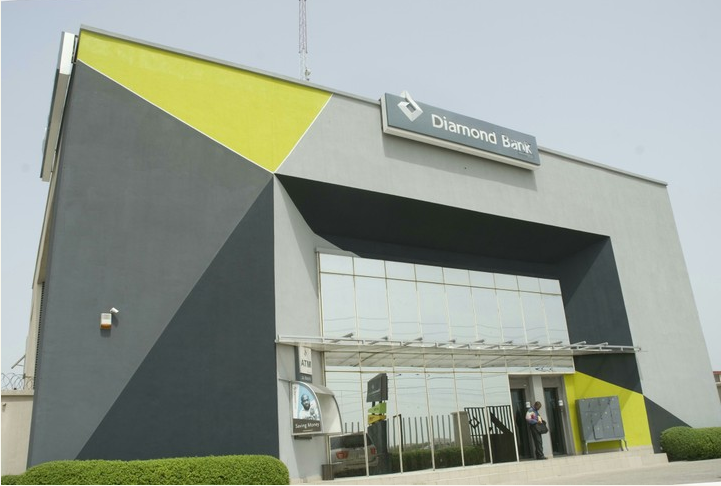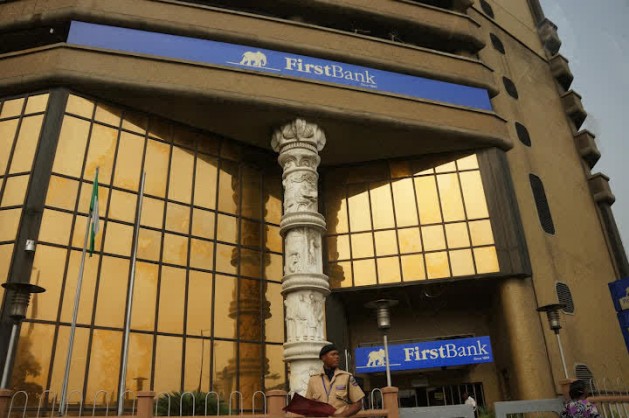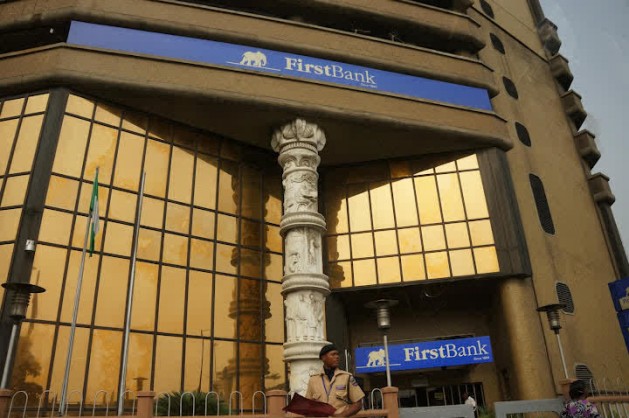By ODUNEWU SEGUN
TWO banks in Nigeria, FirstBank Plc and Diamond Bank got hard knocks from global rating agency, Standard and Poors, S&P Global last week, with FirstBank getting the hardest over its financial health position.
In the report, the agency downgraded the credit ratings of FirstBank, from what in lay man’s terms will mean “this bank is in trouble”.
S&P lowered the bank’s long-and short-term counterparty credit on FirstBank to ‘B-/C’ from ‘B+/B’. Also it lowered its long-and short-term national scale ratings on the bank to ‘ngBB/ngB’ from ‘ngA-/ngA-2, placing the long-term rating on CreditWatch with negative implications.
Standard and Poors said the ratings reflect its view that FirstBank will continue to exhibit comparatively weaker asset quality metrics than rate top-tier banks in Nigeria and lower earnings than its peers in 2016 due to high cost of doing business in the country.
It also added that it could lower the ratings on FirstBank by one notch if asset quality deteriorated further, leading to higher credit losses and NPLs than anticipated.
“Alternatively, we could affirm the ratings on FirstBank at the current levels if the bank does not breach the minimum regulatory capital adequacy ratio upon effective devaluation of the naira”
ALSO SEE: Firstbank Plc in trouble, says global rating agency
As for Diamond Bank, S&P Global basically downgraded it to what they termed “CreditWatch Negative”.
“As a result, we are lowering our global scale ratings on Diamond to ‘B-/C’ from ‘B/B’ and our national scale ratings to ‘ngBB/ngB’ from ‘ngBBB-/ngA-3’. We are subsequently placing the long-term ratings on CreditWatch negative.”
According to the S&P, both banks current financial position is healthy which make the banks vulnerable to more losses.
“We anticipate that the bank’s loss experience will remain a challenge for internal capital generation in 2016 and that the bank will likely sustain a weak risk-adjusted capital (RAC) ratio.”
Also the report stated that although Diamond’s business and financial performance over the next 12 months depends on a favourable economic conditions in Nigeria, S&P Global case assumptions do not include a significant higher probability of default such that it would apply for criteria for rating issuers at ‘CCC’
Diamond Bank operates a business model that involves them offering one of the best e-payment channel system in Nigeria. They leverage on that to draw in deposits from retail customers driving down their cost of deposits to about 3%, the lowest in the industry. They then move this less costly deposits into more risky yet lucrative oil and gas and real estate sector loans. Unfortunately, that model hasn’t really worked its magic.
Firstly, the Bank is exposed to the oil and gas sector with about 31% of its total loan portfolio and 12% of loans that are not performing. The oil and gas sector has been doing badly due to the drop in oil prices. This has made most of them unable to service their debts on time as revenues have been severely impacted. Another problem the bank has are loans to cyclical sectors, such as general commerce, manufacturing, and real estate and construction, which together accounted for 40% of total loans and 62% of NPLs as of March 31, 2016.
The result of this is a bank that is about is in danger of declaring more losses from loans issued to its creditors. The bank has made provisions (a part of a loan set aside in anticipation that it might not be recovered in the near term) for bad loans of over N81 billion in the last two years alone. A further provision this year, according to S&P, will send the bank’s capital adequacy ratio below 15%. The Capital Adequacy ratio is basically the approved ratio of a bank’s capital to the number of loans (risk assets) it has in its balance sheet. The ratio set by the CBN for banks.
If Diamond Bank falls below this ratio as S&P suggest it will, the bank will need to raise more equity either from the market or via strategic investors otherwise it could lead to a takeover by the CBN. Let’s hope that never happens.

 Football2 days ago
Football2 days ago
 Business1 week ago
Business1 week ago
 Business1 week ago
Business1 week ago
 Education1 week ago
Education1 week ago
 Crime1 week ago
Crime1 week ago
 Covid-191 week ago
Covid-191 week ago
 Latest5 days ago
Latest5 days ago
 Business1 week ago
Business1 week ago





